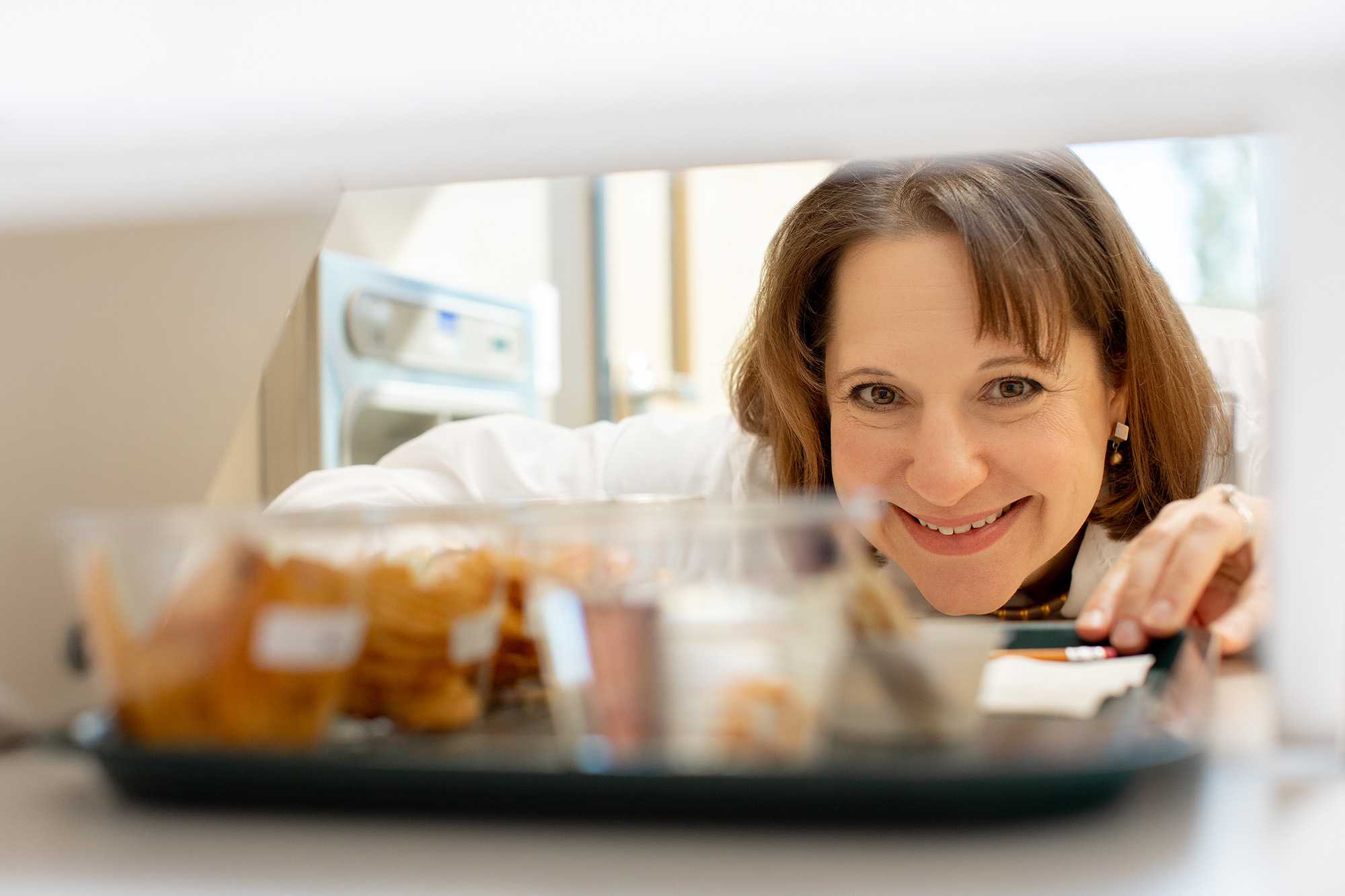Get to know some of the science behind sensory testing! In this blog, our expert in all things sensory evaluation, Annette Hottenstein, provides an overview of different types of sensory testing and how they work.
Sensory evaluation is a science that measures, analyzes, and interprets the reactions of people to products as perceived by the five senses (sight, smell, taste, touch, and hearing). It is a means of determining whether product differences are perceived, the basis for the differences, and whether one product is liked more than another.
Sensory scientists work in partnership with product development teams, providing cross functional support by designing, executing, analyzing, and reporting on a wide variety of sensory methodology. They draw expertise from a variety of fields including food science, psychology, statistics, physiology, and consumer insights.
Sensory scientists use both subjective and objective measures to evaluate consumer products. Subjective measures capture the perceptions, opinions, beliefs, and attitudes whereas objective measures focus on similarities & differences, descriptions, and intensities.
To get started with sensory evaluation, it helps to first ask some questions such as: What do you want to find out? What will you use the data for? What actions will you take in response to data? The answers will tell you the best type of sensory test to conduct. To answer these questions, there are three main categories of sensory testing:
| Category of Sensory Testing | Main Research Question Answered |
| 1. Discrimination Testing | Is there a difference? |
| 2. Descriptive Analysis | What is the nature of the difference? |
| 3. Consumer Testing | Do consumers care? |
Discrimination tests are designed to show whether subjects can detect any sensory differences between samples. Popular methods include the tetrad, triangle, and duo-trio tests. They are commonly used to aid in competitive matching or formulation/process changes where the goal is to go unnoticed by consumers.
The aim of descriptive analysis is to generate numerical data which describes the similarities and differences among a set of products. It provides word descriptions (attributes) of products as well as measured intensities for each of the attributes. Most descriptive analysis techniques require a highly trained and calibrated panel.
Consumer testing, sometimes referred to as “affective” or “hedonic” testing, seeks to assess the personal response (preference or acceptance) of current or potential customers of a product, idea, or specific product attributes. The most widely utilized scale for measuring food acceptability is the 9-point hedonic scale (1 = dislike extremely to 9 = like extremely).
Interested in learning more? Here are some of the top industry groups, courses and conferences related to sensory science:
IFT Sensory & Consumer Sciences Division – member interest group within the Institute of Food Technologists (IFT) that discusses the latest research and insights regarding the measurement, analysis, and interpretation of human beings’ reactions to the characteristics of foods and related materials as perceived through the five senses.
Society of Sensory Professionals – seeks to advance the field of sensory evaluation, including consumer research, and the role/work of sensory professionals, for the purpose of sharing knowledge, exchanging ideas, mentoring, and educating members.
IFT Fundamentals of Sensory Science Short Course – This online course provides an overview of current practices, the benefits of different methods, and strategies on managing resources and information to meet product development requirements (8 continuing education hours).
UC Davis Applied Sensory & Consumer Science Certificate Program – Designed for working professionals, this program combines academic and real-world expertise and explores new techniques, as well as the foundational theory behind current methods of sensory evaluation for both edible and non-edible products (12-month course)
Pangborn International Sensory Symposium – biannual meeting held in honor of the memory of Rose Marie Pangborn (considered the “mother” of sensory evaluation). The symposium showcases the research of fundamental and applied sensory and consumer scientists from a cross section of early and advanced career participants representing industry and academia. The next meeting will be held in Nantes, France in August of 2023.
Need help understanding sensory science? Our experts have got you covered! Contact us today to get in touch with Annette and our R&D team.



 For more information about Fuchs North America's products and programs that support food manufacturers in their product development needs, please
For more information about Fuchs North America's products and programs that support food manufacturers in their product development needs, please